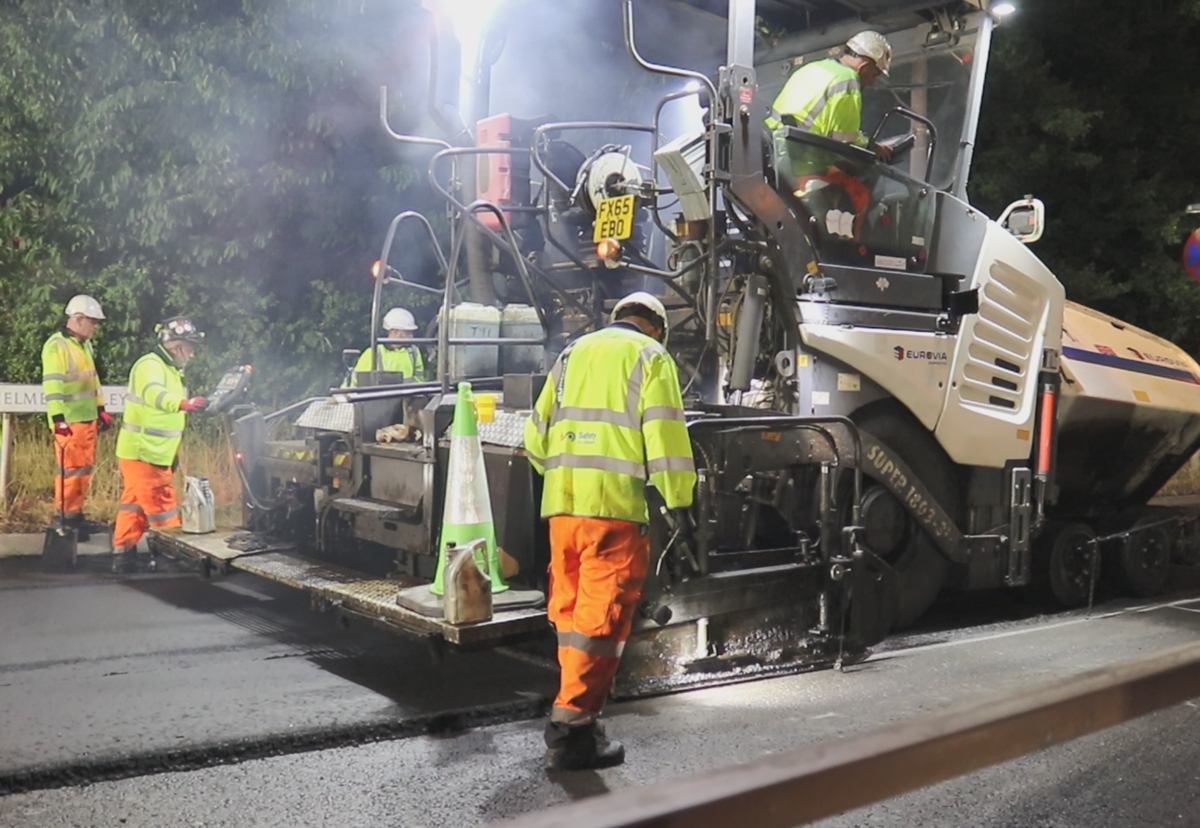They are using Italian developed technology called Gipave which adds graphene to hot rolled asphalt (HRA) at Eurovia’s east London manufacturing facility.
The addition of graphene makes the asphalt far less susceptible both to hardening and cracking in cold temperatures and softening in warm temperatures. It also increases the elasticity and strength to reduce wear, particularly under high loading.
In the Essex trial, conventional HRA surfacing has been laid as a control section, adjacent to the graphene enhanced area so the performance of each can be monitored under identical traffic and climatic conditions.
Eurovia Managing Director, Paul Goosey, said: “We are continuously striving to improve the sustainability of our highway products and services.
“Bringing Gipave to the UK, we can offer clients a surfacing solution, which, in the right location and network, will reduce environmental ‘whole life’ impact and improve resilience of the network.”
Ringway Jacobs managing director Phil Horton added: “As a business we believe innovation is key to offering the highest quality and best value services to our clients.
“Our company structure enables us to call on the expertise of industry leaders across the world and we are delighted to be bringing that know-how to Essex in a project that could save time and money while at the same time reducing the carbon footprint due to the extended life of the pavement.”
Cllr Lee Scott, Essex County Council Cabinet Member for Highways Maintenance and Sustainable Transport said: “This is potentially a game changer in road and footway surfacing as increasing the expected life of the surface could drastically reduce maintenance costs and half the carbon footprint typically associated with such surfacing.
“We look forward to seeing what the results of trial and what potential benefits the graphene solution might bring to the county – and indeed the rest of the UK.”

.gif)





































 (300 x 250 px).jpg)
















.gif)